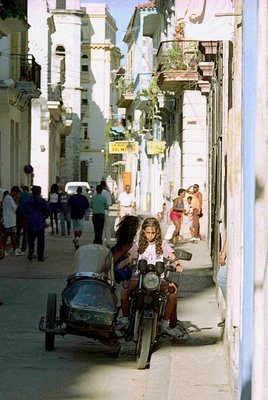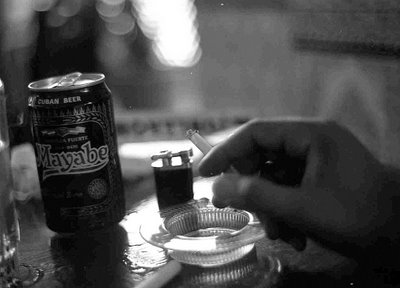Tuesday, September 26, 2006
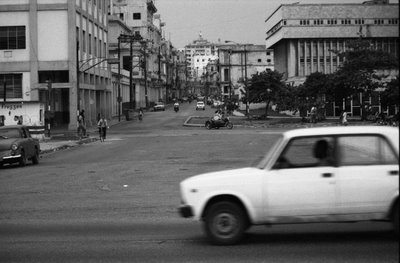
i find it interesting how the absence of vehicles makes a place look empty, unpopulated. i dont remember even experiencing a 'crowd' in cuba. surely there were lots of people around, but because there are relatively few cars on the roads the people werent concentrated on the sidewalks, and that perhaps made the place feel less crowded. the cars are, virtually without exception, as old as you've ever seen in photos or movies.

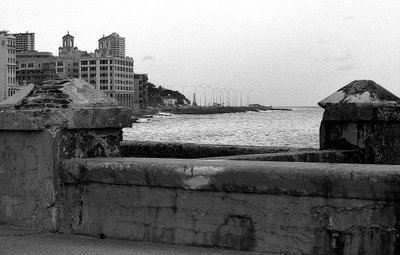
el malecon, havana. this is the nostalgic and crumbling seafront promenade in havana. it is fascinating to think that the colossal imperialista yanki is only a few dozen miles across the calm ocean. part of my intellectual fascination with cuba was based on the wonderment of how a people, a coutry, could fend off american influences, particularly while so close, geographically and indeed socially.

Monday, September 25, 2006
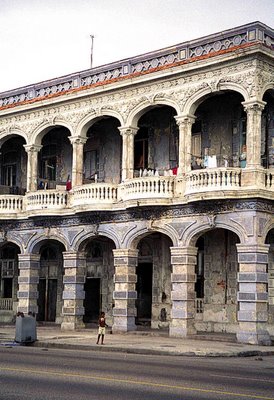
the sea is just across from this building. in my mind it was clear, obvious, that once castro dies the regime will fall, and once it does the rich cubans who fled to miami and elsewhere will return and then there will be trouble. it was explained to me that early in the revolution castro disposessed the rich and partitioned their properties into small untis that were given to the poor to live in. understandably the new occupants had neither the means nor the vested interest to maintain these opulent properties and over the years have resorted to cannibalising their interior for scrap metal to sell, wood to burn, etc. it is thus not unusual to see apartments without doors or windows, with bare light fixtures, and other evidence of partial demolishion. these are 'prime real estates', certainlyy worth significant amounts of money. and this brings me to my main curiosity when i arrived in cuba: are cubans really different? not the leaders, not the movement, but rather the average person. is the average person a 'communist' who will carry on the revolution after the charismatic and all powerful leader dies? in a way i wanted to find that, i wanted to find people who really think differently and have different values. but i didnt. the cubans i met, and i stayed with many, dined with many, partied with many, were just like me and anyone else ive ever met. they all wanted a better material life, all expressed frustration with the artificial poverty heaped on them. who knows what would have been without the american embargo, maybe they would have been more like scandinavians, but as it was they seemed to be eager, hungry for the most inane of material conforts - a dollar to buy this or that, a pair of trainers, blue jeans, whatever. so i didnt see any evidence that the revolution will survive at the level of the people and without that those with motivation and means will be able to come back and reconquer what they believe belongs to them....

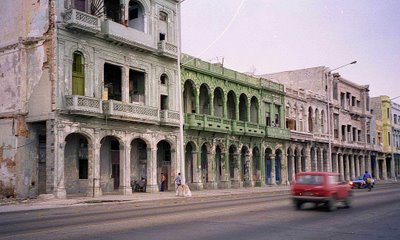
el malecon, havana 1998. i wonder how much, if any, its changed. there were lots of half finished - or half demolished depending on how one looks at it - construction sites in havana. there was a small historic quarter that had been substantially renovated, but even there many buildings were incomplete. a cuban told me once a story behind this situation: since only the government can sell anything, and the government works on '5 year plans', one year people were given sand but not concrete or bricks. the next year they were given bricks, but by then the rain and the loiters had done away with the sand, and in any case there wasnt any concrete. and the following year they were given concrete but both the sand and the bricks were gone, so ... then the cycle begins again and in the end it can take 10 years to get anything done, and in many cases nothing ever changes...





